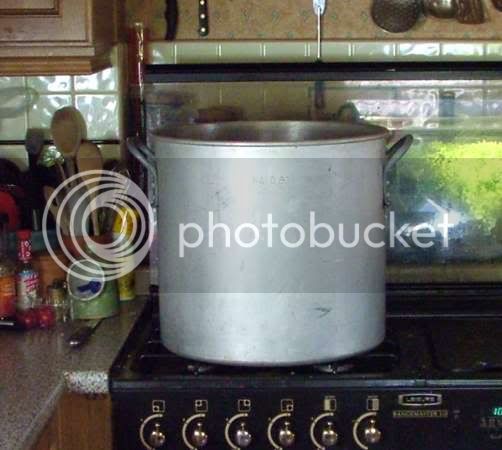tubby_shaw
Regular.
- Joined
- Feb 7, 2009
- Messages
- 387
- Reaction score
- 15
Firstly let me say that this is only the way that I do it :wha: there are other ways and I will make reference to them as we go along (probably :lol: )
First the equipment
My boiler
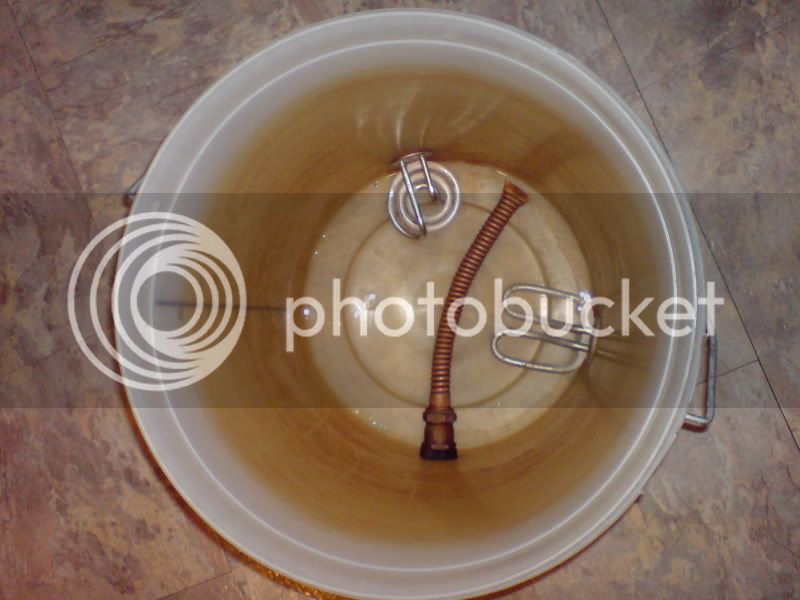
This is used to dissolve your malt extract into your liquor, to steep your grains and finally boil your wort with your hops.
This has a 30L capacity, it is "best practice" to boil more than the final required volume and allow for evaporation and losses to the hops trub etc. If you have a smaller boiler you can either make smaller batches, boil smaller volumes and combine them later or boil as much as you can and then dilute prior to fermenting. As can be seen I have a hop strainer in the bottom of my boiler as an alternative the hops can be boiled in a bag.
Grain bag
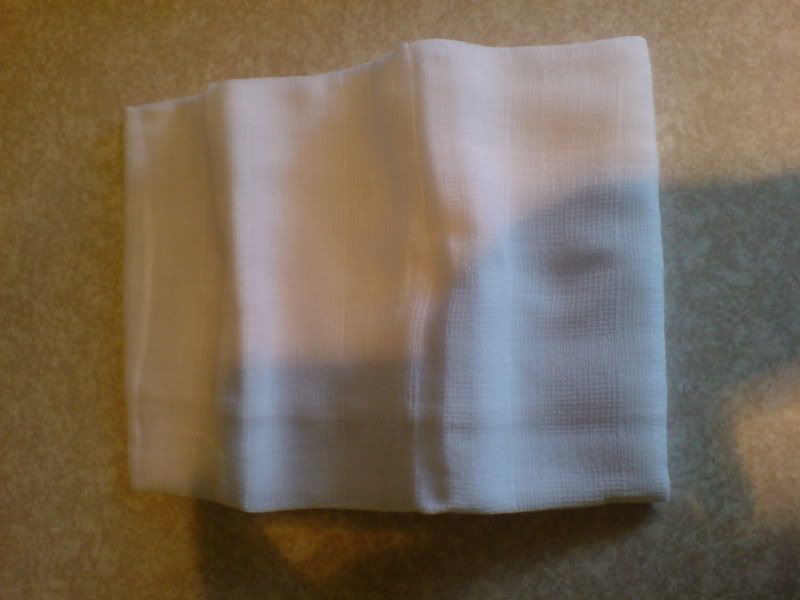
I prefer to use muslin squares as I find they retain the finer grain particles.
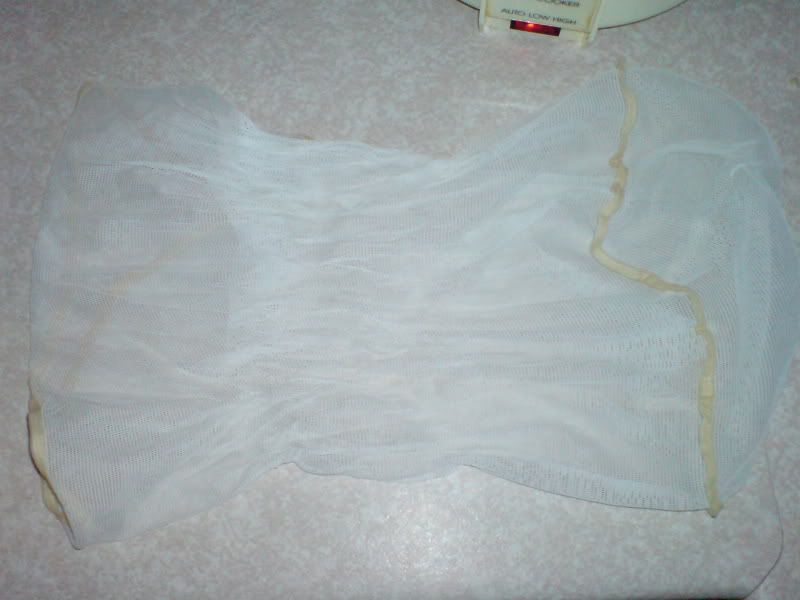
Nylon grain bags such as the one above are available and are preferred by some brewers.
The recipe can be found HERE
The ingredients
The malt extract
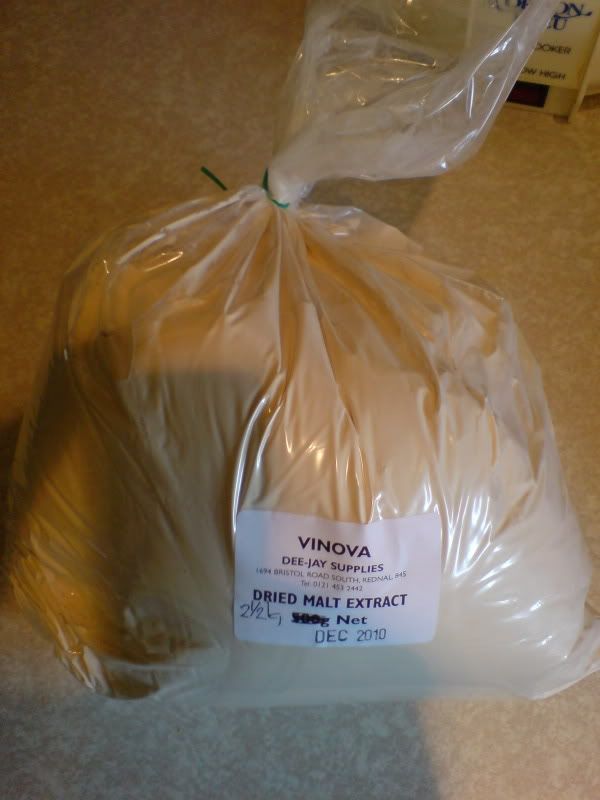
I am using 2.5kg of light dried malt extract (spraymalt) as the base of the beer. Liquid malt extract will work just as well.
My speciality grains
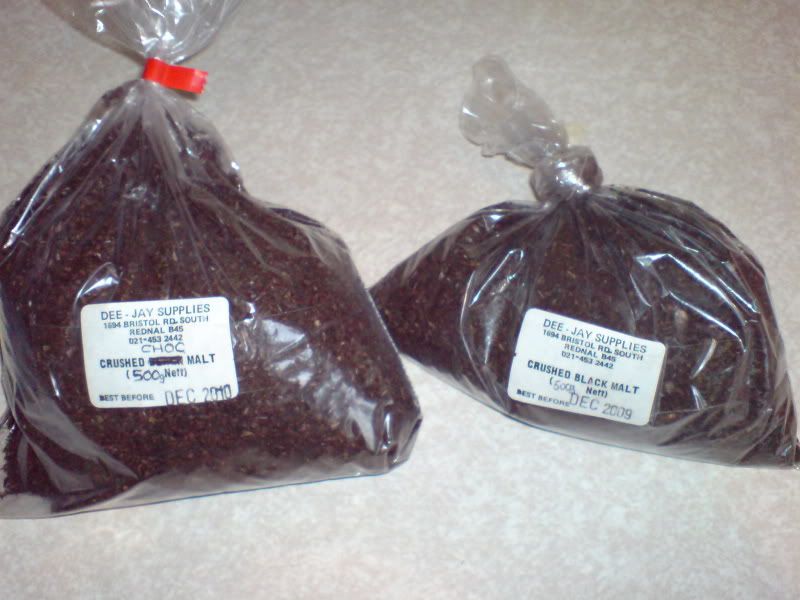
Black malt and Chocolate malt
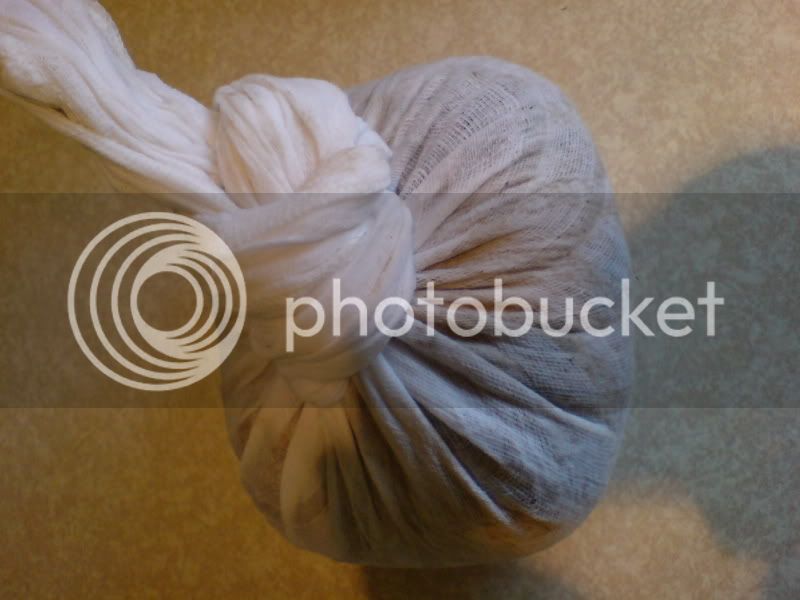
The muslin square with the contained grains.
The hops
Magnum pellets and Northdown whole hops.
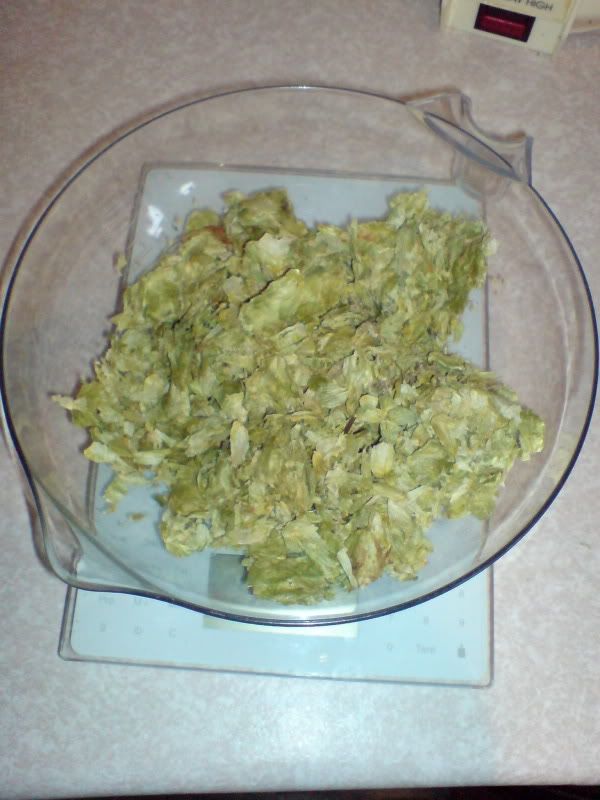
The yeast
Safale SO4
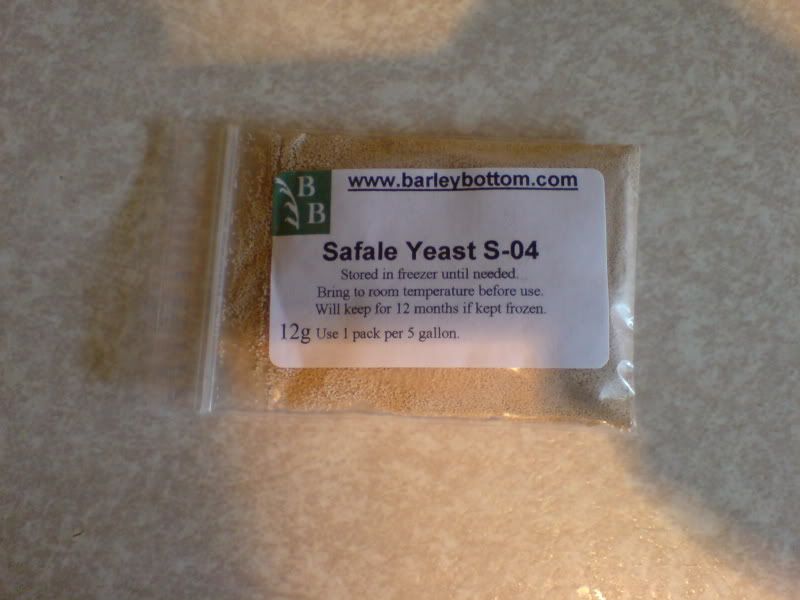
The technique.
I added 20L of cold tap water to the boiler and treated with 1/2 tsp campden powder (equivalent to 1/2 campden tablet) to remove the chlorine / chloramines
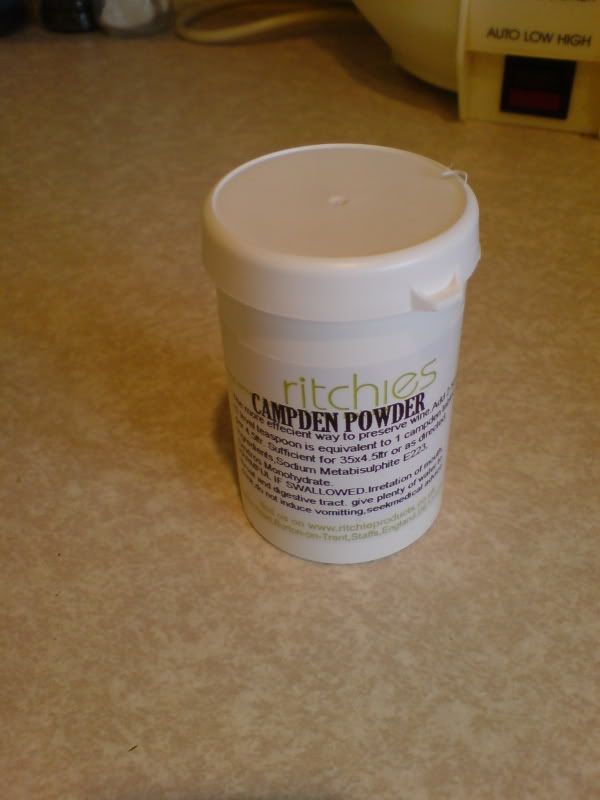
With the power to boiler off I slowly added the malt extract to the liquor stirring continuously
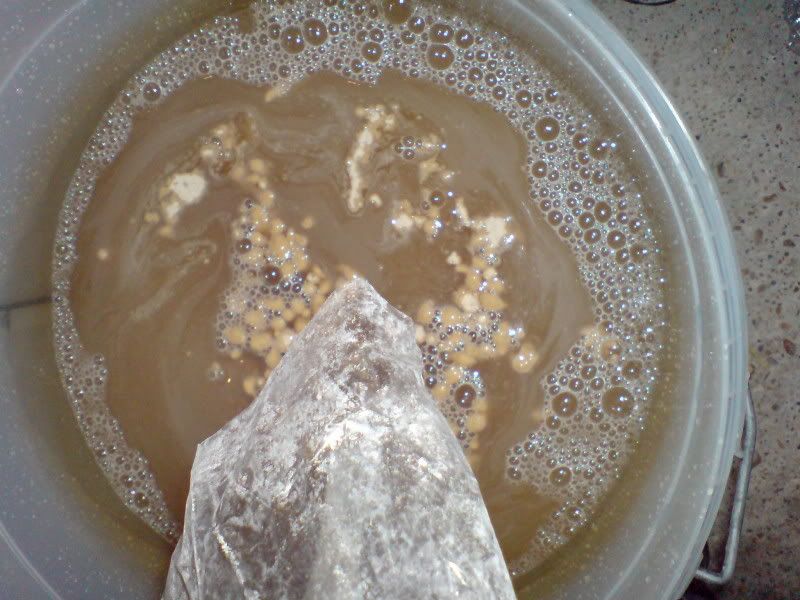
When the malt extract was fully dissolved the heat was switched on and the bag of grains suspended
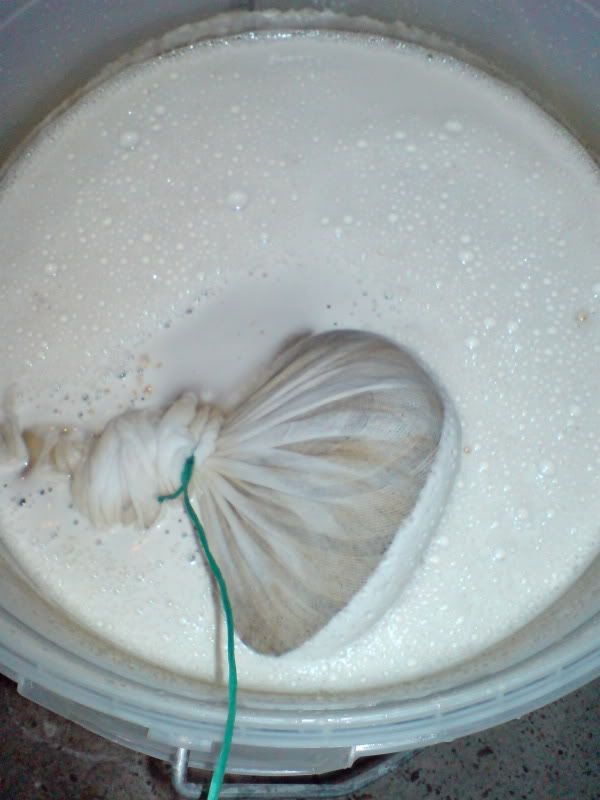
Whilst the wort was heating the bag of grains was given an occasional squeeze to aid extraction
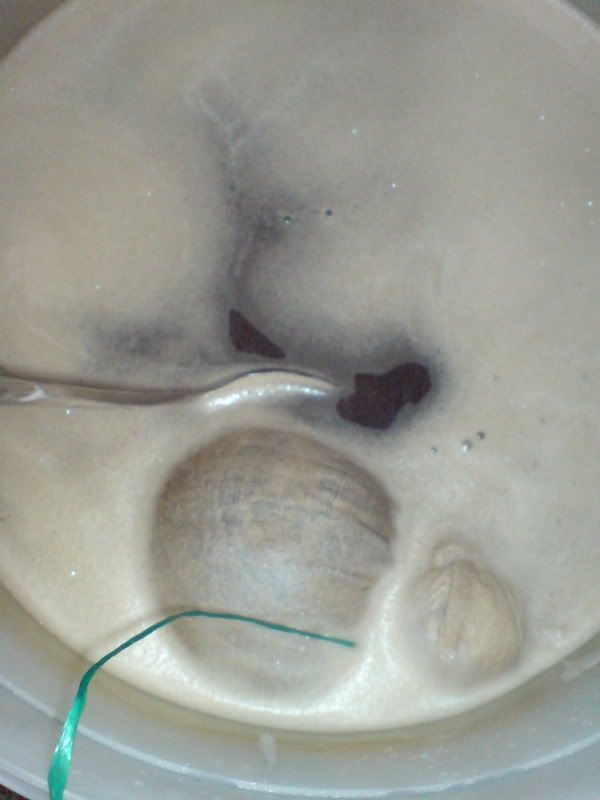
Once the temperature had reached 70C it was time to remove the grains
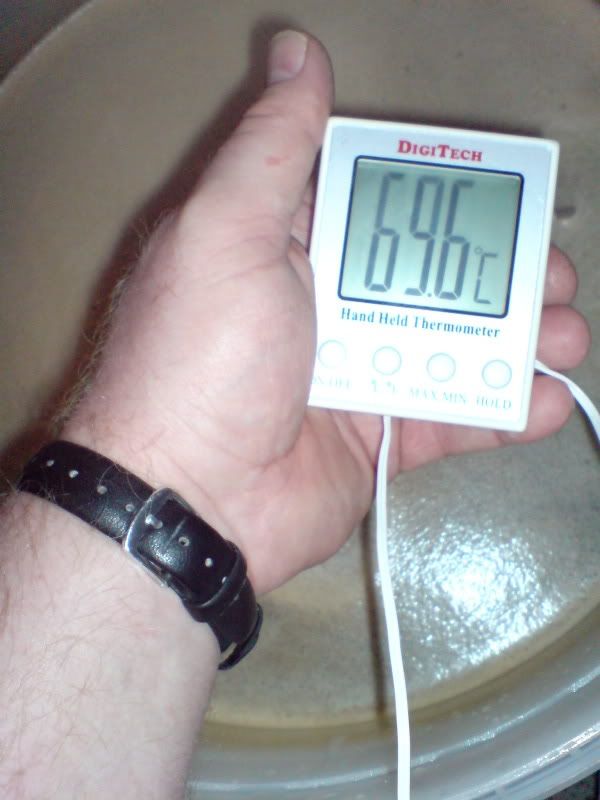
Out they come
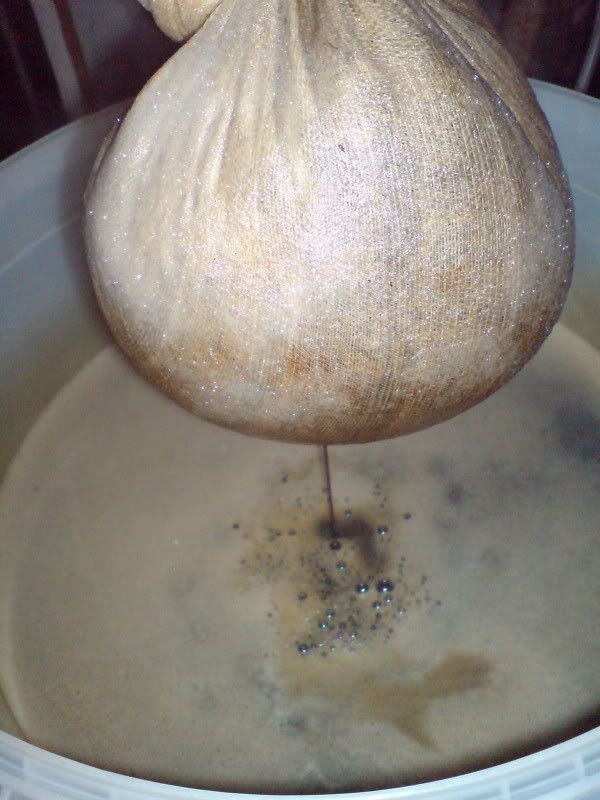
Be careful they're hot, put them safely to one side for later
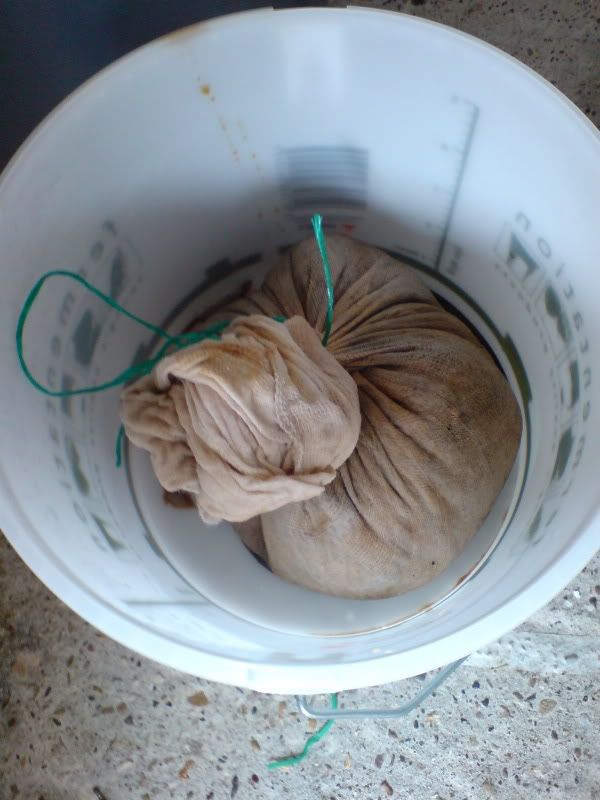
Once they have cooled down sufficiently give the bag a squeeze to release the trapped extract. Add this to the rest of the wort.
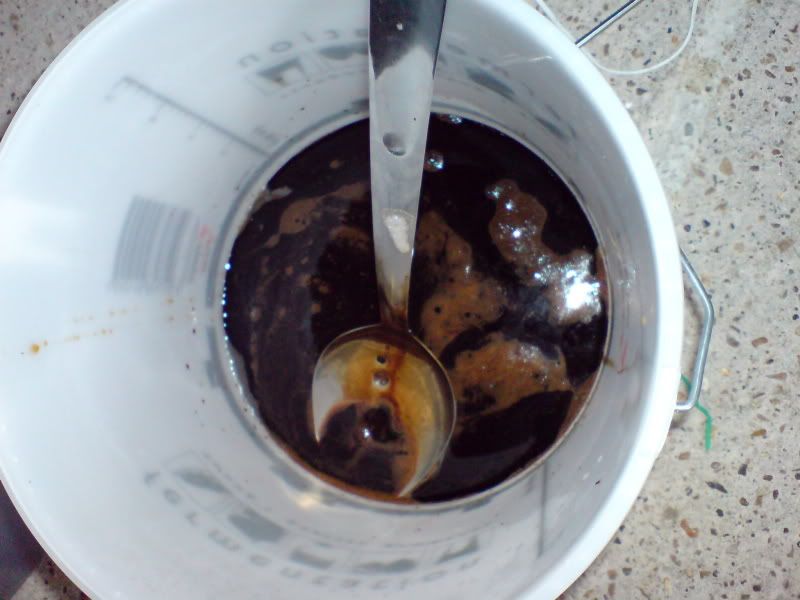
Keep applying the heat and bring to the boil. Keep an eye on it as I only just caught this one before it boiled over.
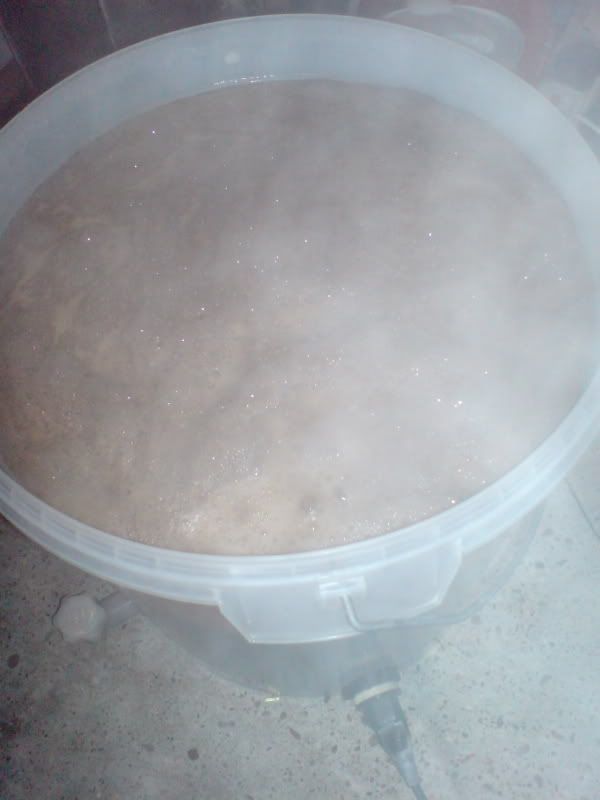
Once up to boil add the hops
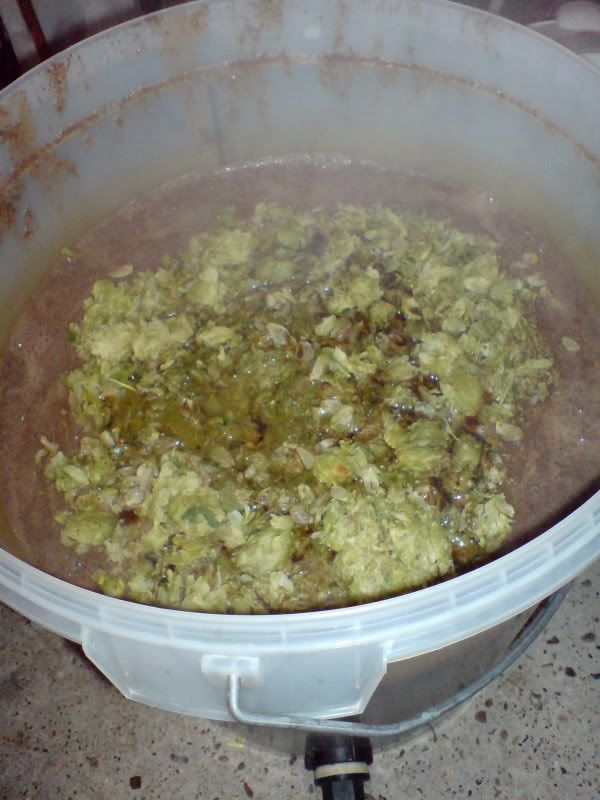
Boil it for a minimum of 60 minutes
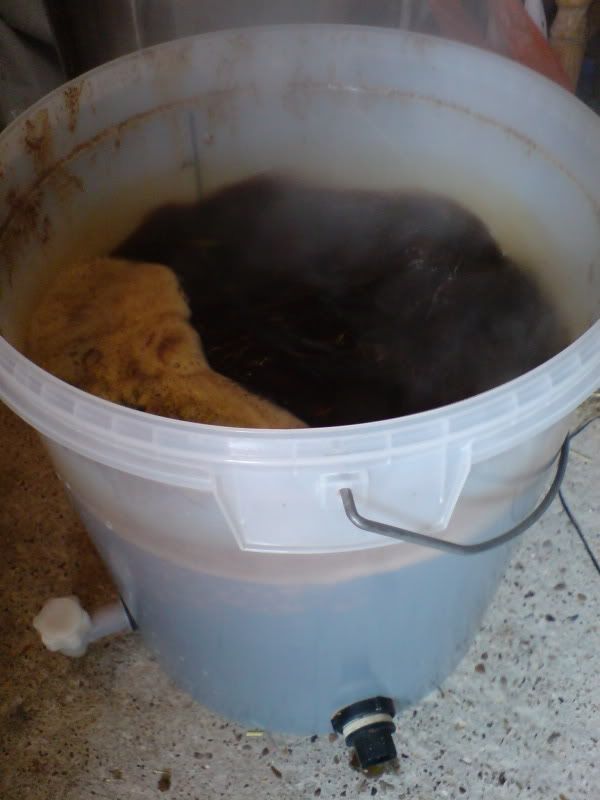
If you are using a cooling coil add it for the last 15 minutes of the boil to sanitise it.
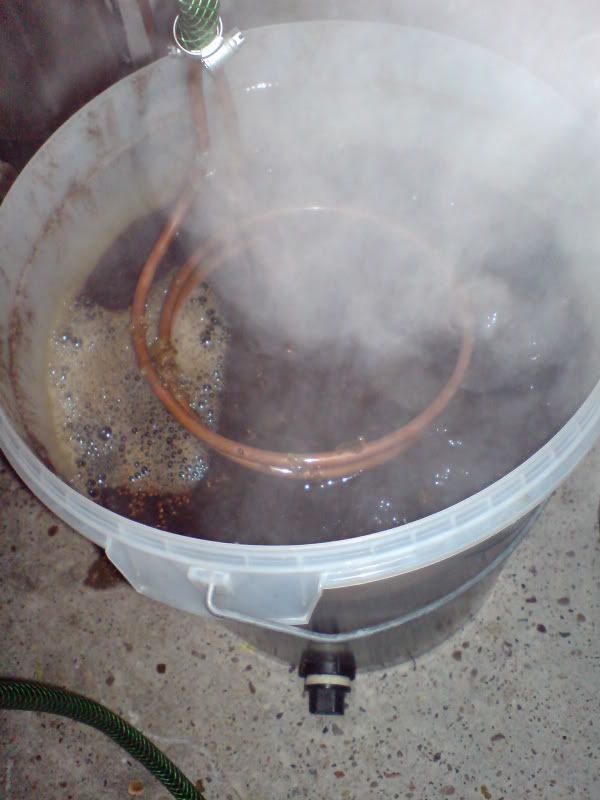
I also added some late hops at this point
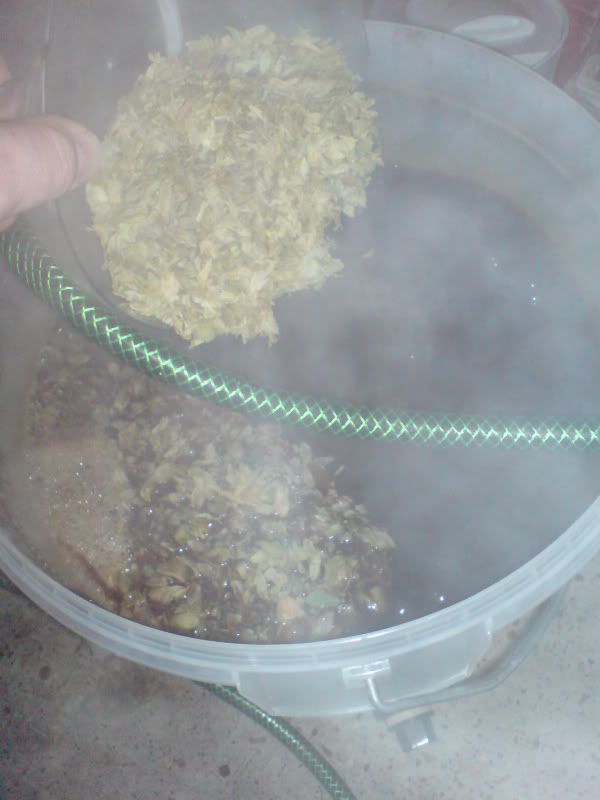
When cooled to 20C it was allowed to stand for 15 minutes to allow the hops to settle and form a filter bed over the strainer. If using a hop boiling bag this step can be omitted. The cooled wort was then run into the fermentation vessel to aerate.
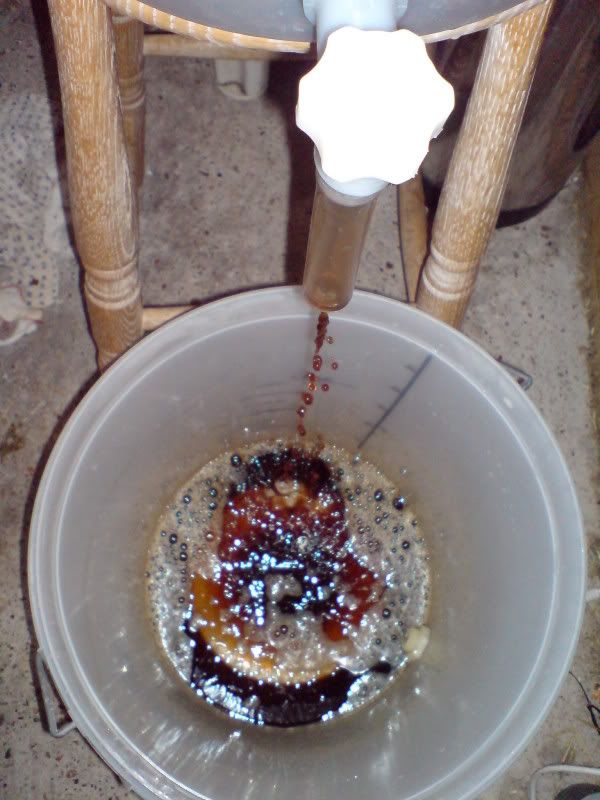
Dropping from a height gives good aeration.
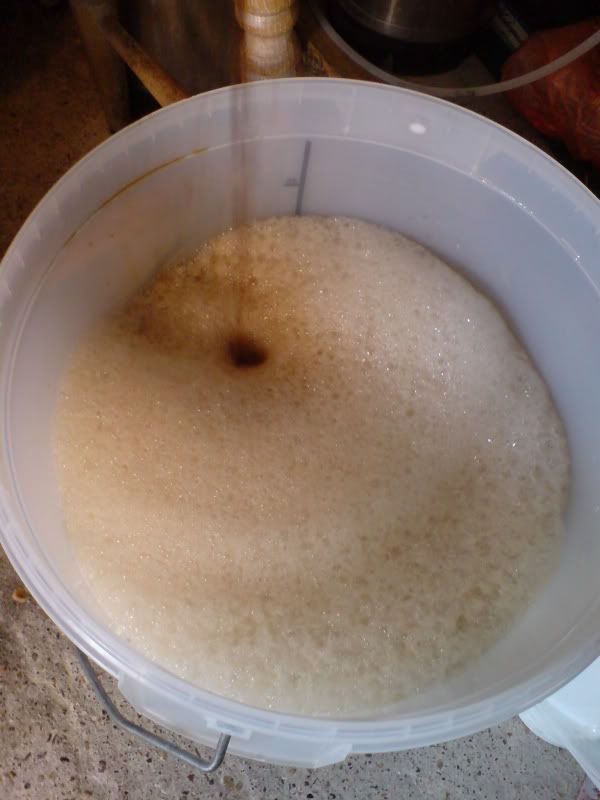
All that's left is to check the gravity and pitch the yeast.
24L of stout in the FV, it's up to the yeast to do it's thing now
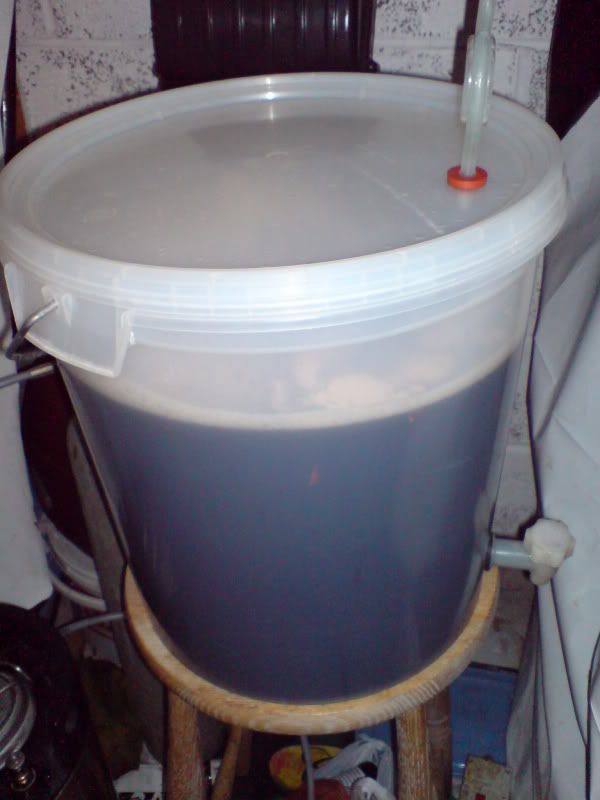
24 hours later and the yeast is trying to climb out of the FV (Fermenting at 20C)

Eight days in the primary, then dropped to secondary and dry hopped with a good hand full of fuggles
Five days later and it's time for bottles and keg.
The final gravity was 1.018 which for an all grain brew is quite high but is perfectly normal for an extract stout :)

Finally after all the hard work and patience the reward :party:

I hope that this helps to demystify extract brewing, If you have any further questions ask away :thumb:
First the equipment
My boiler

This is used to dissolve your malt extract into your liquor, to steep your grains and finally boil your wort with your hops.
This has a 30L capacity, it is "best practice" to boil more than the final required volume and allow for evaporation and losses to the hops trub etc. If you have a smaller boiler you can either make smaller batches, boil smaller volumes and combine them later or boil as much as you can and then dilute prior to fermenting. As can be seen I have a hop strainer in the bottom of my boiler as an alternative the hops can be boiled in a bag.
Grain bag

I prefer to use muslin squares as I find they retain the finer grain particles.

Nylon grain bags such as the one above are available and are preferred by some brewers.
The recipe can be found HERE
The ingredients
The malt extract

I am using 2.5kg of light dried malt extract (spraymalt) as the base of the beer. Liquid malt extract will work just as well.
My speciality grains

Black malt and Chocolate malt

The muslin square with the contained grains.
The hops
Magnum pellets and Northdown whole hops.

The yeast
Safale SO4

The technique.
I added 20L of cold tap water to the boiler and treated with 1/2 tsp campden powder (equivalent to 1/2 campden tablet) to remove the chlorine / chloramines

With the power to boiler off I slowly added the malt extract to the liquor stirring continuously

When the malt extract was fully dissolved the heat was switched on and the bag of grains suspended

Whilst the wort was heating the bag of grains was given an occasional squeeze to aid extraction

Once the temperature had reached 70C it was time to remove the grains

Out they come

Be careful they're hot, put them safely to one side for later

Once they have cooled down sufficiently give the bag a squeeze to release the trapped extract. Add this to the rest of the wort.

Keep applying the heat and bring to the boil. Keep an eye on it as I only just caught this one before it boiled over.

Once up to boil add the hops

Boil it for a minimum of 60 minutes

If you are using a cooling coil add it for the last 15 minutes of the boil to sanitise it.

I also added some late hops at this point

When cooled to 20C it was allowed to stand for 15 minutes to allow the hops to settle and form a filter bed over the strainer. If using a hop boiling bag this step can be omitted. The cooled wort was then run into the fermentation vessel to aerate.

Dropping from a height gives good aeration.

All that's left is to check the gravity and pitch the yeast.
24L of stout in the FV, it's up to the yeast to do it's thing now

24 hours later and the yeast is trying to climb out of the FV (Fermenting at 20C)

Eight days in the primary, then dropped to secondary and dry hopped with a good hand full of fuggles
Five days later and it's time for bottles and keg.
The final gravity was 1.018 which for an all grain brew is quite high but is perfectly normal for an extract stout :)

Finally after all the hard work and patience the reward :party:

I hope that this helps to demystify extract brewing, If you have any further questions ask away :thumb:











![BREWING THERMOMETER STICKERS ACCURATELY MONITOR FERMENTING BEER & WINE LIQUID TEMPERATURES 5PCS HOME BREW SPIRITS WINE LCD ADHESIVE [US]](https://m.media-amazon.com/images/I/311DDjo2X3L._SL500_.jpg)
































